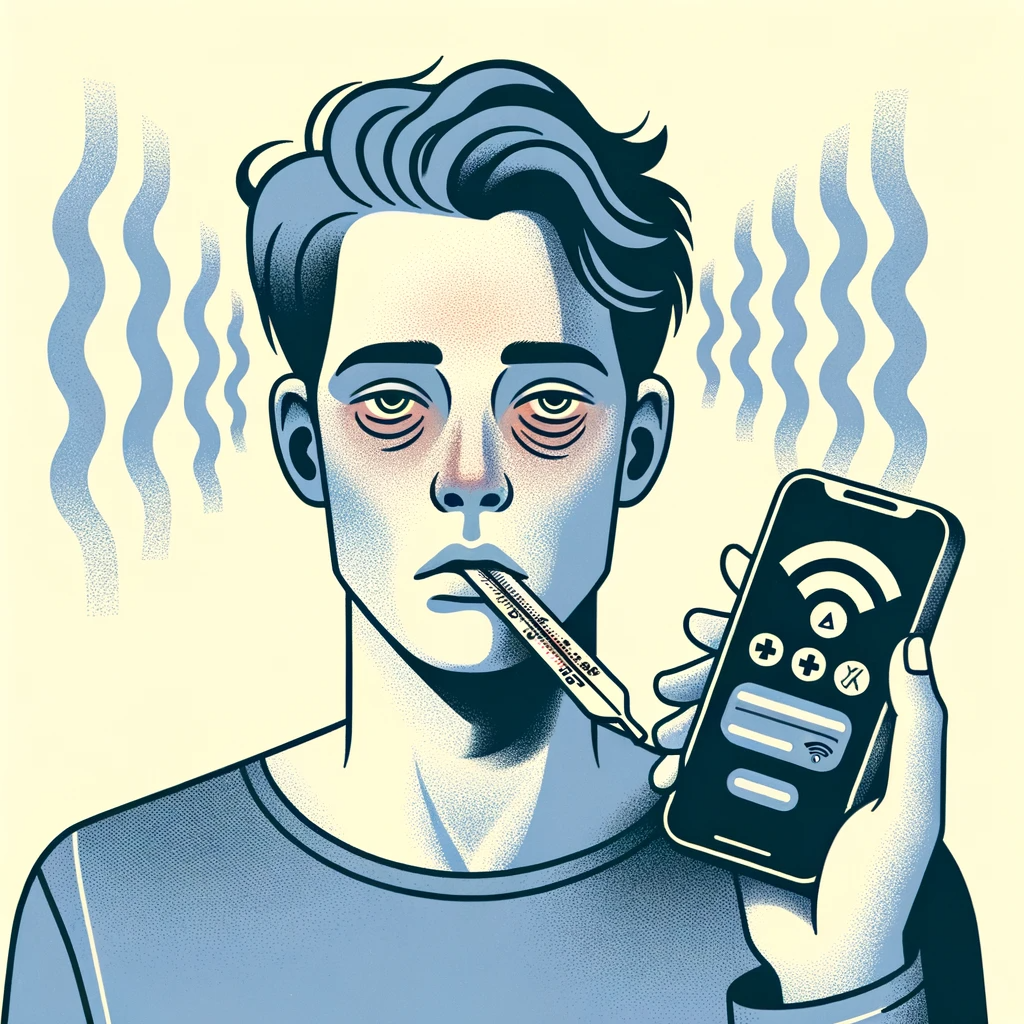The body is complex, and any factor that can further disturb or stress it during a period of illness or recovery might not be beneficial. While the specific combined effects of RFR and COVID-induced oxidative stress have yet to be extensively researched, it’s a reasonable precautionary approach to minimize potential stressors when the body is compromised.
The Combined Threat of ROS: Why Reducing RFR Exposure During Illness Might Be Crucial
In today’s digital age, it’s nearly impossible to avoid exposure to Radiofrequency Radiation (RFR). Our mobile devices, which we rely on heavily, emit this form of radiation. Simultaneously, as the world grapples with the ongoing COVID-19 pandemic, another potential risk factor has been highlighted: the production of Reactive Oxygen Species (ROS) due to the virus.
https://academic.oup.com/ajh/article/34/8/779/6357346
ROS: The Double-Edged Sword
On one hand, ROS plays an integral role in our body’s cellular processes. They’re involved in cell signaling and homeostasis. However, when ROS production becomes excessive, oxidative stress occurs, leading to potential damage to DNA, proteins, and lipids within cells. Oxidative stress has been associated with a range of health concerns, including inflammation, premature aging, and a range of diseases.
Both RFR exposure and the COVID-19 virus have been separately shown to increase ROS production, leading to heightened oxidative stress. While the body might handle each of these stressors individually, the combination of both could amplify the damage, especially when the immune system is already compromised due to illness.
Minimizing RFR Exposure: A Precautionary Step
It’s nearly impossible to predict when one might be exposed to the COVID-19 virus. However, we have more control over our exposure to RFR. During times of illness or after recovery from a viral infection that causes cellular stress, it might be prudent to limit close contact with high-powered RFR devices, giving the body a chance to recuperate without the added stress of increased ROS production from RFR.
This isn’t about fostering fear but rather about adopting a precautionary approach. While researchers continue to study the combined effects of RFR and viruses like COVID-19 on oxidative stress, individuals can take proactive steps to support their health. Reducing proximity to our mobile devices, especially during illness or recovery, could be one such measure to consider.
As we continue to navigate our environments, the air we breathe, and the electromagnetic fields that surround us, we must understand the intricacies of how it affects our body on a cellular level, taking steps to reduce potential stressors makes sense. Until there’s a clearer understanding of the combined effects of RFR and COVID-19 on oxidative stress, it’s better to err on the side of caution.
To be safe! Do your best to maintain reduced exposure risk to both COVID and cell phone radiation as each plays a role in harmful effects at a cellular level from an imbalance of ROS. When you do get COVID, the studies indicate it might be very wise to take a serious break from wireless devices while recovering.








